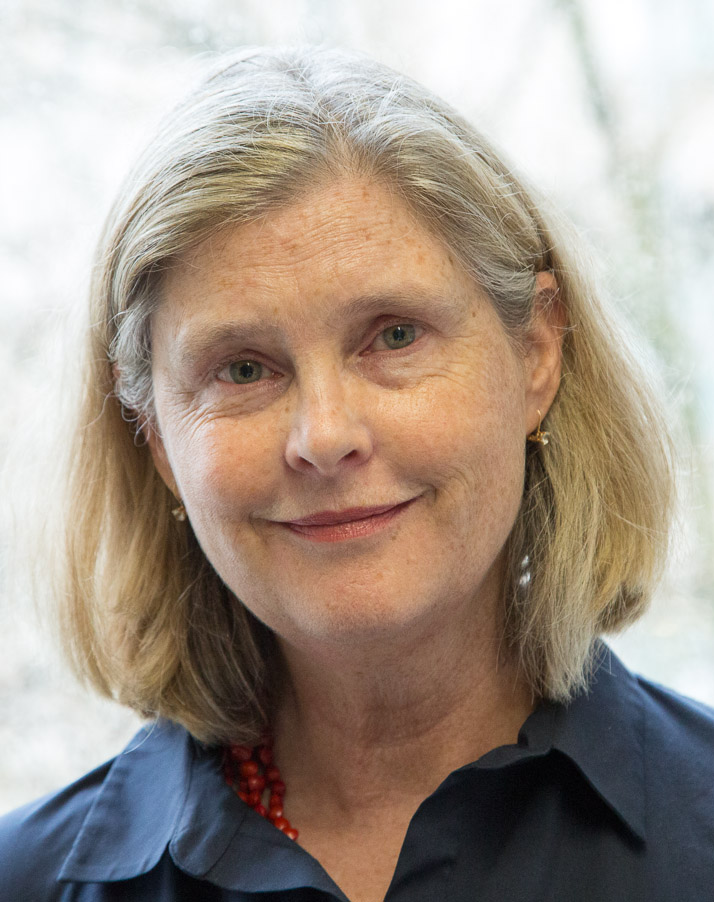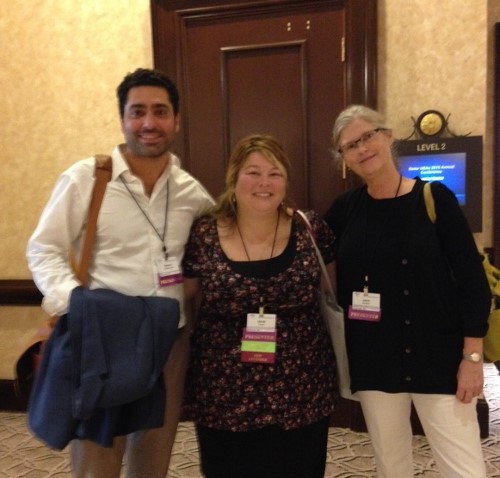|

Heidi Faust
University of Maryland Baltimore County
Baltimore, Maryland, USA
|
|

Ramin Yazdanpanah
Florida State University
Tallahassee, Florida, USA |
|

Jane Dunphy
Massachusetts Institute of Technology
Cambridge, Massachusetts, USA
|
As part at of our 2015–2016 goals, the ICIS is working to
interact with intercultural organizations outside of TESOL, to create
networks and bring new knowledge to the organization. Three ICIS members
presented at the 2015 SIETAR conference in Orlando, Florida. Their
presentation, “Expanding Intercultural Communication Competence in
TESOL: Three Approaches from Higher Education Contexts,” featured
diverse ways in which intercultural communication is addressed in TESOL
at their university programs.
As part at of our 2015–2016 goals, the ICIS is working to
interact with intercultural organizations outside of TESOL, to create
networks and bring new knowledge to the organization. Three ICIS
members, Ramin Yazdanpanah (Florida State University); Heidi Faust, ICIS
Chair (University of Maryland Baltimore County; UMBC); and Jane Dunphy
(Massachusetts Institute of Technology), presented at the SIETAR
conference 14–17 October 2015 in Orlando, Florida. Their presentation,
“Expanding Intercultural Communication Competence in TESOL: Three
Approaches from Higher Education Contexts,” featured diverse ways in
which intercultural communication is addressed in TESOL at their
University Programs.
Heidi presented on the Advanced Professional Writing in English
Online course offered by UMBC's Center for Advanced Proficiency in
English to nonnative-English-speaking employees of the U.S. Department
of Defense. This online course focuses on intercultural communication
and writing skills for an American workplace. In designing the course,
various cultural contexts needed to be considered, including the context
of military culture; workplace culture; diverse cultural communication
styles of the participants, who spanned various cultural and linguistic
backgrounds, age groups, education levels and English levels; as well as
participants’ level of comfort and familiarity with online instruction
and web 2.0 resources. The course helps participants explore the
relationship between language and culture, expectations for diverse
writing tasks in the workplace, as well as intercultural communication
styles, and provides direct instruction in writing emails, reports,
evaluations, and so on.

ICIS members present at SIETAR. Left
to right: Ramin Yazdanpanah (Florida State University), Heidi Faust
(University of Maryland Baltimore County), Jane Dunphy (Massachusetts
Institute of Technology)
Jane described the design, content, and assignments for
Communicating Across Cultures, a course that brings together domestic,
international, and bilingual undergraduates at a U.S. research
university. In the course, students examine the features that compose
macro- and microcultures, and study the impact of these cultural
components on the communication norms of nations, regions, genders,
institutions, disciplines, and age groups. The course’s overarching
goals are (1) to foster sensitivity to students’ own communication norms
and intercultural communication differences, and (2) to provide the
knowledge and skills to interact successfully with people from different
cultures.
Ramin lead the audience in activities that demonstrate how
"cultural synergy" can be facilitated for increased intercultural
competence. Ramin discussed his research findings within the context of a
TEFL certification program, highlighting the importance of bringing
together TEFL student-teachers and ELLs to focus explicitly on
intercultural topics and activities. Facilitation of this cultural
exchange and guided reflection are also key aspects for teacher and
intercultural trainers.
The SIETAR conference offered many highlights, including a very
welcoming and social group of knowledgeable interculturalists that
represented higher education programs, corporate trainers, and
researchers. Among Heidi's favorite events was the storytelling open
mic, where interculturalists from around the world shared their "How did
that happen?" moments of intercultural miscommunications and their
learning from such rich experiences. Another rich presentation was “What
Are You? Exploring the Ambiguity and Complexity of Mixed Race and
Biracial Identity,” offered byPatricia M. Coleman, Kelli
McLoud-Schingen, and Tamara Thorpe. This workshop approached the topic
of communication around the issue of outsiders' reactions to biracial
identities through powerful personal narratives. This storytelling
technique highlighted three diverse narratives and was then debriefed
with the participants who explored their own experiences and the impact
of the question "What are you?" and the alienating effect it has on
those who are racially diverse. Finally, the group brainstormed
alternative communication techniques that result in less
insulting/alienating encounters.
Heidi and Jane bothappreciated learning how the intercultural
critical incident videos, produced by the Norquest College presenters
from Alberta, Canada, can be used to generate cross-cultural dialogue,
build intercultural sensitivity, and help people navigate communication
differences in multicultural workplaces. Their website has many free
resources, videos, simulations, and activities that may be useful
supporting cultural integration and workplace communication. Check out
their resources here.
Jane also found a good balance between the more serious conference
sessions and the lighter side of cross-cultural training. First, Janet
Bennett’s humorous “Five Weird and Wonderful Ways to Grow Intercultural
Competence” demonstrated ways to integrate the three key elements of
intercultural competency—curiosity, cognitive complexity, and
empathy—into the Developmental Model of Intercultural Sensitivity (DMIS)
and into adaptable learning activities. “The Use of Film in
Cross-Cultural Training: Moving Beyond Stereotypes” focused on how film
presents (and misrepresents) cultural information. Presenter Julia
Gaspar-Bates provided some well-chosen and entertaining clips in her
demonstration.
In addition, Ramin greatly appreciated keynote speaker Amer F.
Ahmed's talk (and rap) on the intersections of intercultural
communication and social justice, leading him to explore Kathryn
Sorrell's textbook, Intercultural Communication: Globalization
and Social Justice. He also enjoyed Dr. Mary Kay Park and
Madeleine St. John's insights on the use of history and narrative to
illustrate intercultural themes.
SIETAR affiliates are located globally and provide access to
many intercultural resources and networking opportunities. For more
information, see the links below. As we continue to grow our ICIS,
please share other intercultural organizations and networks that may be
of interest to the membership so we can continue to highlight resources
in the newsletter.
Related Links:
SIETAR Networks
SIETAR: About Us
SIETAR 2015 Conference Website
Heidi Faust coordinates online training for EFL
teachers and English learners as the associate director of TESOL
Professional Training Programs at the University of Maryland Baltimore
County. She is interested in equity and diversity in education and the
intersections of race, class, and intercultural communication. She lives
in Baltimore, and loves to sing and play guitar.
Ramin Yazdanpanah is the TEFL program coordinator at
Florida State University, specializing in English language teaching,
EFL/ESOL teacher education, and intercultural communication training. A
visionary with a global-to-local perspective, Ramin strives to apply
effective and creative methods to learning and teaching that facilitate
personal and professional growth. Ramin is set to complete his PhD in
international and comparative education, with a focus on intercultural
competence training within English language teacher education programs.
Jane Dunphy directs MIT's English Language Studies
Program and teaches subjects in professional and cross-cultural
communication: communication for managers, scientific and technical
writing, advanced speaking and critical listening, and communicating
across cultures. Beyond MIT, she has designed professional communication
workshops for domestic and international organizations, companies, and
academic institutions, including Society of Women Engineers (SWE),
Daimler-Chrysler, GEN3, the International Institute in Spain, the Masdar
Institute (UAEs), Vellore Institute of Technology (India), Yasar
University (Turkey) and Harvard’s Kennedy School of Government. With
Catherine Ross, Jane Dunphy coauthored Strategies for Teaching Assistant and International
Teaching Assistant Development: Beyond Micro Teaching
(Jossey-Bass, 2007). |

